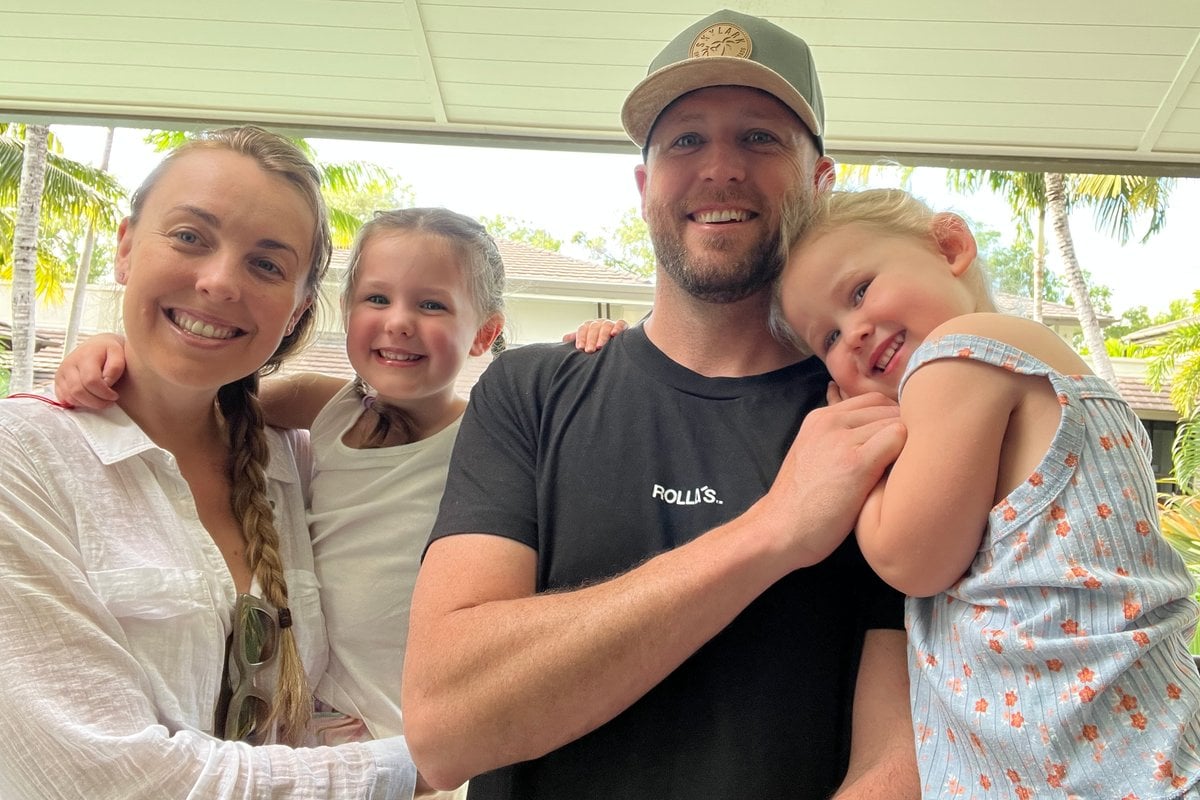
When 34-year-old Rhea Felton received a breast cancer diagnosis, it was the emotional aspects she struggled with the most.
"In the weeks after being told I had breast cancer in February 2021, I would wake up at 3am to read about all the different treatment options," the mum-of-two tells Mamamia.
"I was fearful. I also felt the pressure of making the right decision for myself, my husband Gareth, my girls Neve and Mila, and the rest of my family. It was overwhelming."
Watch: How to check your breasts. Post continues below.
After much deliberation, Rhea opted for a unilateral mastectomy (removal of one breast) immediately followed by reconstruction surgery known as DIEP flap breast reconstruction.
This complex procedure involves surgeons removing fatty tissue from the abdomen to reconstruct the breast and also create a new nipple.
"A lot of people in my circumstance don't choose the DIEP, or choose to have it at a later date, because of the intense recovery time. They just don't have the resources to make that decision. I'm so grateful that I could choose the procedure that I wanted, because I was able to rely on the amazing support network I have around me."




























































































